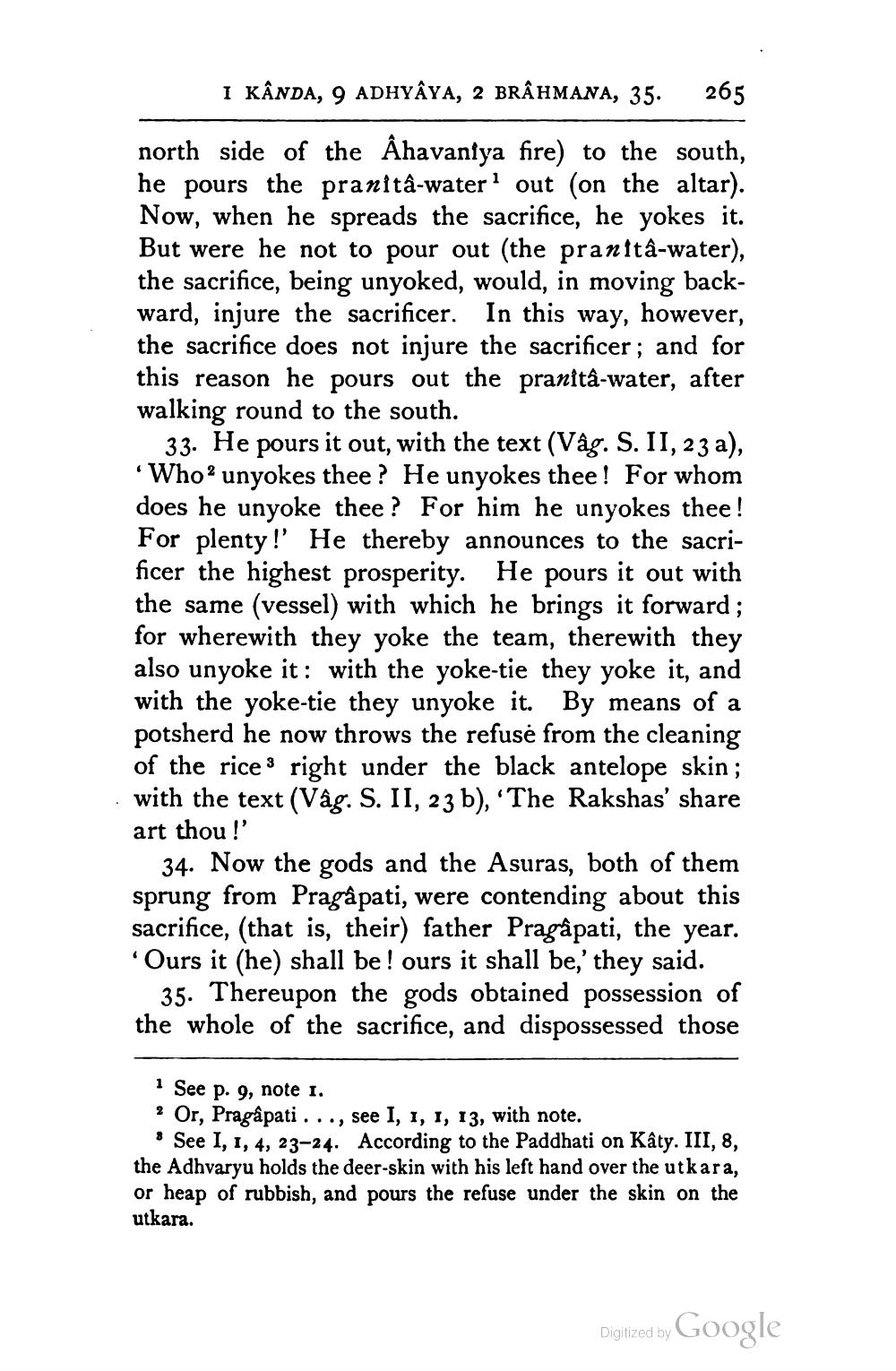________________
I KÂNDA, 9 ADHYÂYA, 2 BRÂHMANA, 35.
265
north side of the Åhavaniya fire) to the south, he pours the pranita-water out (on the altar). Now, when he spreads the sacrifice, he yokes it. But were he not to pour out (the pranitâ-water), the sacrifice, being unyoked, would, in moving backward, injure the sacrificer. In this way, however, the sacrifice does not injure the sacrificer; and for this reason he pours out the pranita-water, after walking round to the south.
33. He pours it out, with the text (Vâg. S. II, 23 a), Who? unyokes thee? He unyokes thee! For whom does he unyoke thee? For him he unyokes thee! For plenty !' He thereby announces to the sacrificer the highest prosperity. He pours it out with the same (vessel) with which he brings it forward; for wherewith they yoke the team, therewith they also unyoke it: with the yoke-tie they yoke it, and with the yoke-tie they unyoke it. By means of a potsherd he now throws the refuse from the cleaning of the rice 3 right under the black antelope skin; with the text (Vâg. S. II, 23 b), 'The Rakshas' share art thou !
34. Now the gods and the Asuras, both of them sprung from Pragâ pati, were contending about this sacrifice, (that is, their) father Pragâpati, the year. 'Ours it (he) shall be! ours it shall be,' they said.
35. Thereupon the gods obtained possession of the whole of the sacrifice, and dispossessed those
See p. 9, note 1. ? Or, Pragâpati ..., see I, 1, 1, 13, with note.
See I, 1, 4, 23-24. According to the Paddhati on Kâty. III, 8, the Adhvaryu holds the deer-skin with his left hand over the utkara, or heap of rubbish, and pours the refuse under the skin on the utkara.
Digitized by Google




